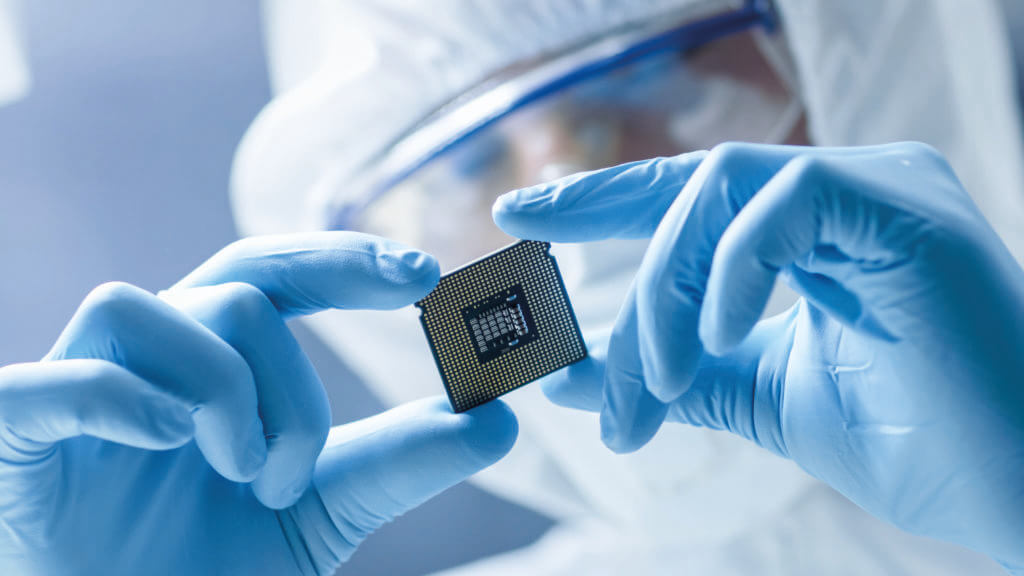In today’s world, microchips, the center of technology, are found in almost every aspect of our lives. These tiny components function as the “brains” of many devices from computers to smartphones, automobiles to household appliances etc. In this article, we will explore how microchips function, how they are integrated into our daily lives, and what awaits us in the future. A microchip is a small
semiconductor containing transistors and other electronic components that manage the functions of a computer or electronic device. The history of microchip technology dates back to the invention of the transistor in 1947. This journey, which began with the development of the first integrated circuits in the 1960s, extends to the chips that features billions of transistors today. While the size of microchips used to process, store and transmit data is getting smaller, their capacity and functionality are increasing continuously.

Microchips are the cornerstones of today and tomorrow.
The Cornerstones of Daily Life
Microchips are being used in almost every aspect of modern life and becoming the driving force of a continuous transformation. You can find these “little giants” in countless products from smartphones to computers, cars to household appliances, and even medical devices. Although each microchip is only a few millimeters in size, they manage and facilitate many activities that we carry out in our daily lives. When it comes to smartphones and computers, especially, microchips are almost the heart and brain of these devices. Microchips, also known as processors, determine the speed, functionality and efficiency of these devices. With advanced microchips, we are able to materialize almost everything from high-performance games to complex data analysis smoothly.
In the automotive sector, microchips make vehicles safer, more efficient and more comfortable. Features such as advanced driver assistance, engine management and entertainment systems all
function with microchips. The contribution of microchips for household appliances and medical devices is also huge. While smart home appliances make our daily tasks more efficient and easier, the microchips used in medical devices open the path to faster and accurate diagnoses, as well as advanced treatment methods. From vital devices such as pacemakers to compact devices that measure blood sugar, many medical instruments rely on the precise and reliable functionality of microchips.

Without microchips, many of the conveniences and innovations in modern life would not be possible. These small technological wonders stand out as elements that make our daily life easier, increase our security and enable us to live a better quality of life. As developments continue, it is clear that the role of microchips in our lives will increase further and open the paths to next generation technologies. Therefore, we can claim that microchips are the cornerstones not only of today, but also of tomorrow.
Medical devices equipped with advanced microchips will be able to diagnose diseases at earlier stages.

Microchips Will Push the Boundaries of Technology in the Future
The future of microchip technology is shaping up not only as impressive but also as revolutionary. Developments in this field are pushing the boundaries of technology by including artificial intelligence, Internet of Things, automation and much more. Future microchips will have much more advanced features than they have today, and this will allow for innovations that will fundamentally change our lives.
In the field of artificial intelligence, the development of microchips is leading to faster and smarter systems. Advanced AI microchips will bring learning and decision-making processes to a level closer
to natural human intelligence. This development will make AI more efficient and effective in our personal devices as well as in the whole industry. For example, our personal assistants and smart home systems will further customize and optimize our daily tasks.
In the field of Internet of Things (IoT), on the other hand, the connection and communication between our devices will become stronger thanks to microchips. These devices will be able to process more data by consuming less energy and convert this data into meaningful information. As the devices we use in our daily lives interact with each other more intelligently, our lives will become more comfortable and efficient.
In the field of automation, microchips will lead to major changes at both industrial and personal levels. Robotic and automated systems will evolve in such a way that they can carry out faster, more reliable and more complicated operations. This will impact a wide range of areas, from manufacturing processes to our personal devices. For instance, the robots at the factories will work more efficiently or the robot vacuum cleaners in the
houses will clean more effectively.
In addition, the future of microchips opens the path to further innovations in health technologies. Medical devices equipped with advanced microchips will be able to diagnose diseases at an earlier stage, make treatment methods more effective, and even expand the possibilities of remote health monitoring and intervention. This will both improve the quality of patient care and the accessibility to health services.
In the field of Internet of Things (IoT), on the other hand, the connection and communication between our devices will become stronger thanks to microchips.




